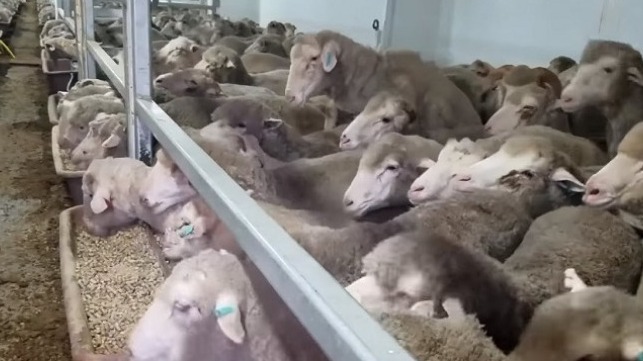Australia's Live Sheep Export Trade May Be “Effectively Over”

The professional veterinarian group Vets Against Live Export has claimed that Australia's live sheep export trade is “effectively over” after the release of a draft report from the independent Heat Stress Risk Assessment Technical Reference Panel last week.
“Using animal welfare rather than mortality as a goal (after 40 years of suffering), it is evident that sheep can't go to to the Middle East during the northern summer (plus a fair few other months),” says the group in a blog. “In addition, the report recommends that its not only the shipping phase but the destination ports that need to be considered......at last some common sense.”
The panel has recommends that the wet bulb temperature welfare limit for a standardized shipper sheep is 28°C. The model should use a 98 percent probability that the deck temperatures the sheep would be exposed to during a planned voyage would remain at or below that limit.
Work on a new approach to heat stress risk assessment for the live export of sheep to the Middle East during the northern hemisphere summer was a recommendation from Dr. Michael McCarthy’s review - instigated by the Australian government after whistleblower footage of thousands of sheep dying of heat stress was released. The footage shows images on board an August 2017 voyage of the Awassi Express for Emanuel Exports when 2,400 sheep died of heat stress, and it became the centerpiece of an investigative media report on the 60 Minutes program, aired on April 8. Throughout the program, whistleblower footage from five separate voyages is aired depicting thousands of sheep suffering severe heat stress; sheep caked in melted feces and urine; injured and sick animals left to die slowly; decomposed bodies left in pens with living sheep and pregnant ewes giving birth and their lambs dying.
WARNING GRAPHIC CONTENT: Some viewers may find this footage disturbing.
The panel report is now open for public comment, with new Heat Stress Risk Assessment settings expected to be implemented in 2019 before the next northern hemisphere summer.
The RSPCA has welcomed the draft report, noting particularly the long overdue acknowledgment of the scientific evidence regarding the inevitable heat stress experienced by sheep during the Middle Eastern summer months. The RSPCA says the report will have significant consequences for the trade’s viability with the likely cessation of the May to October summer trade.
The RSPCA has long maintained that if the live sheep trade was forced to reconcile its practices with basic animal welfare standards it would no longer be viable. It continues to urge the government to face up to this reality and assist producers with an ordered phase-out of the trade.
In contrast, the Australian Livestock Exporters’ Council is still looking to the future of the industry. Earlier this month, exporters agreed to impose a three-month moratorium on shipments from June next year in a bid to “reset” the trade. The Council is now consulting with sheep producers and other supply chain stakeholders on the details of the panel report: “It is very clear that the draft Heat Stress Risk Assessment, as it stands, would have a significant impact on Australia’s sheep industry, especially in Western Australia.
“With regard to industry reform, exporters, producers and other supply chain stakeholders are eagerly awaiting the Federal Government’s imminent release of the updated Australian Standards for the Export of Livestock. The updated standards, alongside Heat Stress Risk Assessment requirements, will provide much needed certainty regarding the practical and commercial parameters on which the livestock export industry will operate in the future.
“In the meantime, exporters will continue to make significant investments in technology to monitor and manage welfare risks, reflecting the care we have for the animals in our supply chains, while working hard to maintain a commercially viable trade.”
